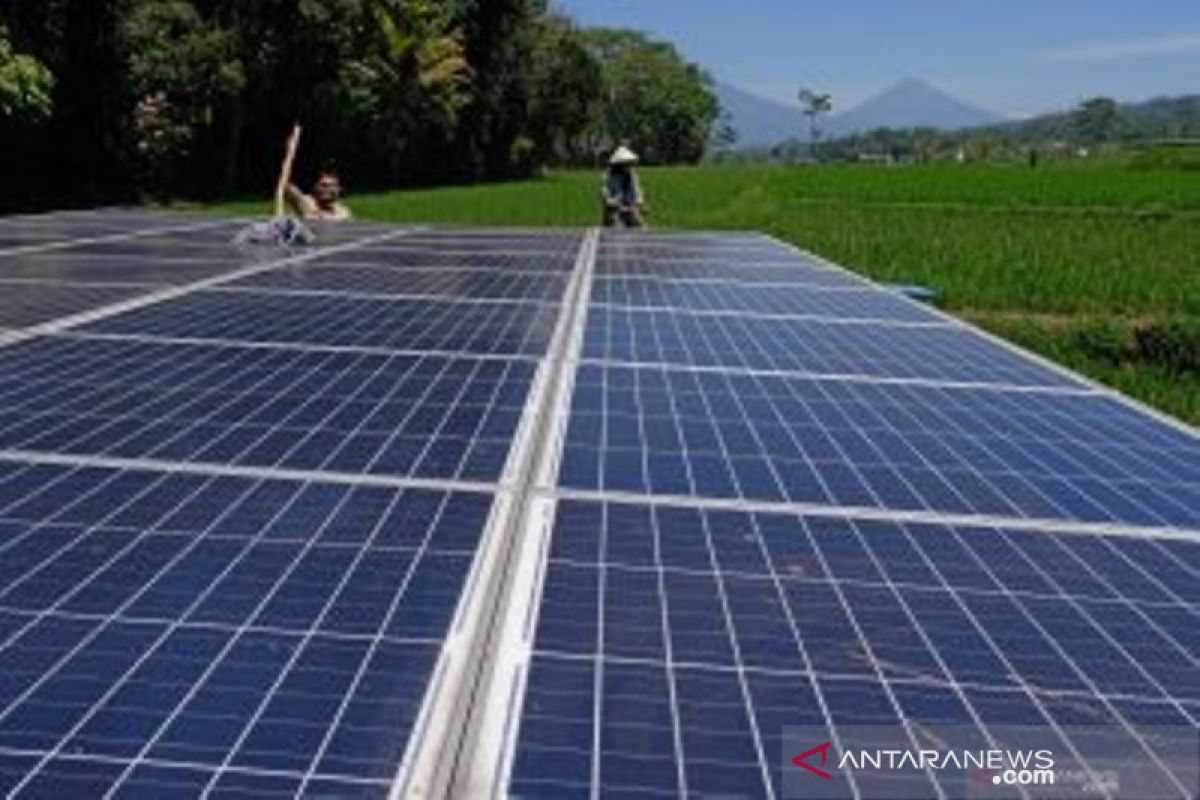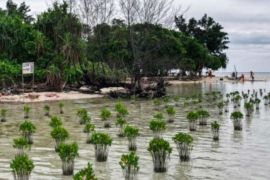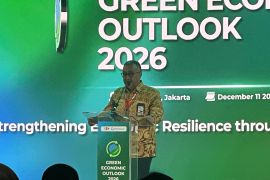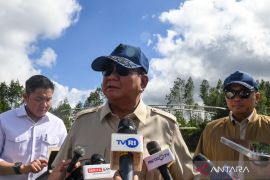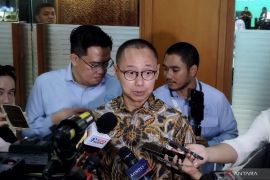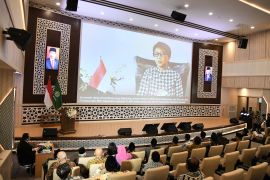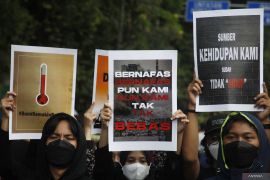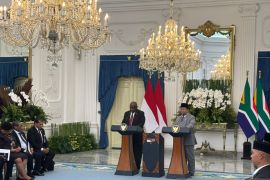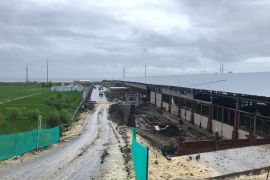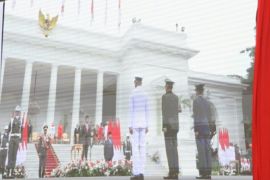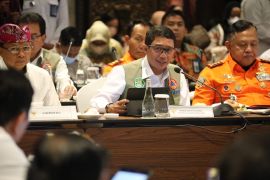“To put it simply, the state of the planet is broken,” he said minutes into his speech at Columbia University.
His words at the end of last year reflected the somewhat grim start of 2021, when governments and people across the globe still had their attention focused on pandemic management and recovery strategies, further hindering efforts to tackle issues that had long existed before the pandemic hit, including climate change and environmental sustainability.
Although throughout 2021 environmental issues continued to loom large over the world, they were not left without hope. Initiatives to build back better and achieve a green recovery continue to be the focus of many high-level meetings and national agendas.
As climate crisis threatens everyone, especially those who are most vulnerable, commitments to build back better have been voiced by country leaders with regard to sustainable development and green recovery.
The same ambitions have also been put forward by Indonesia, both at the national level and at multilateral forums.
Indonesia’s stance
At the national level, Indonesia has shown an ambition to mainstream its environmental agenda with development measures.
The Ministry of National Development Planning/National Development Agency (Bappenas), at the beginning of the year, reiterated Indonesia’s view that economic development should be carried out in alignment with the preservation of the environment, which can be achieved through a green economy.
“We have to fight for a more green recovery by considering the balance between the economy and social aspects with the environmental aspects for a more resilient condition, in other words, to build back better with a low-carbon development,” said Minister of National Development Planning, Suharso Monoarfa, in March.
Such a commitment was also emphasized by President Joko Widodo (Jokowi) at the 26th United Nations Climate Change Conference (COP26) where he reiterated Indonesia’s pledge to tackle climate change issues in the country.
“With such immense nature potential, Indonesia continues to make its contribution in handling climate change. The rate of deforestation has lowered significantly, reaching the lowest number in the last 20 years. Forest fires went down 82 percent in 2020,” he noted at the conference that was held in Glasgow, Scotland.
Other efforts the country is pursuing in order to align its recovery with sustainable development include the rehabilitation of its mangrove forest, the development of an ecosystem of electric cars as well as solar-powered power plants, one that is the largest in Southeast Asia, he said.
Indonesia is also opting for more renewable energy such as biofuel and clean energy-based industry, he added.
President Jokowi then asked developed countries to contribute to Indonesia’s endeavors toward achieving a green economy through support for the country’s programs and transfer of technology.
Indonesia's commitment to the reduction of carbon emissions has been obvious as the green recovery is believed to bolster environment-based global economic transformation, ANTARA FOTO/Rivan Awal Lingga/wsj
As recently disclosed by Finance Minister Sri Mulyani Indrawati, a sustainable green economy was crucial and beneficial to support better economic growth in future.
In fact, long before the COVID-19 outbreak struck, Indonesia had laid the foundation for a green economy and prepared several strategic policies to support it, she pointed out.
The 2020-2024 National Medium-Term Development Plan (RPJMN) has even incorporated climate change into the mainstream of Indonesia's broader Low Carbon Development (LCDI) strategy.
G20 Presidency
During its G20 presidency in 2022, Indonesia aims to show its strong commitment to handling climate change, as the world has immense expectations of the G20 leading global recovery.
Indonesia’s presidency, themed “Recover Together, Recover Stronger”, focuses on three key issues, which include inclusive handling of health issues, digital-based transformation, and transition toward renewable energy.
It aims to strengthen global solidarity in handling climate change and show its commitment and contribution in the matter.
The country’s strong ambition is juxtaposed with increasingly urgent calls for tangible actions from all stakeholders to tackle the climate crisis, with the UN Secretary-General saying that the window to avert devastating climate impacts is rapidly closing. There is a lot of hope pinned on Indonesia’s presidency of the G20 and on its leading member countries to a green recovery.
In its endeavor to bring attention to smaller and less developed countries, Indonesia is preparing to also ensure that they are saved from the impact of the climate crisis.
Related news: Inclusive data, computation system should support green economy
Related news: Thohir urges SOE industrial estates to help realize green economy
Editor: Rahmad Nasution
Copyright © ANTARA 2021
